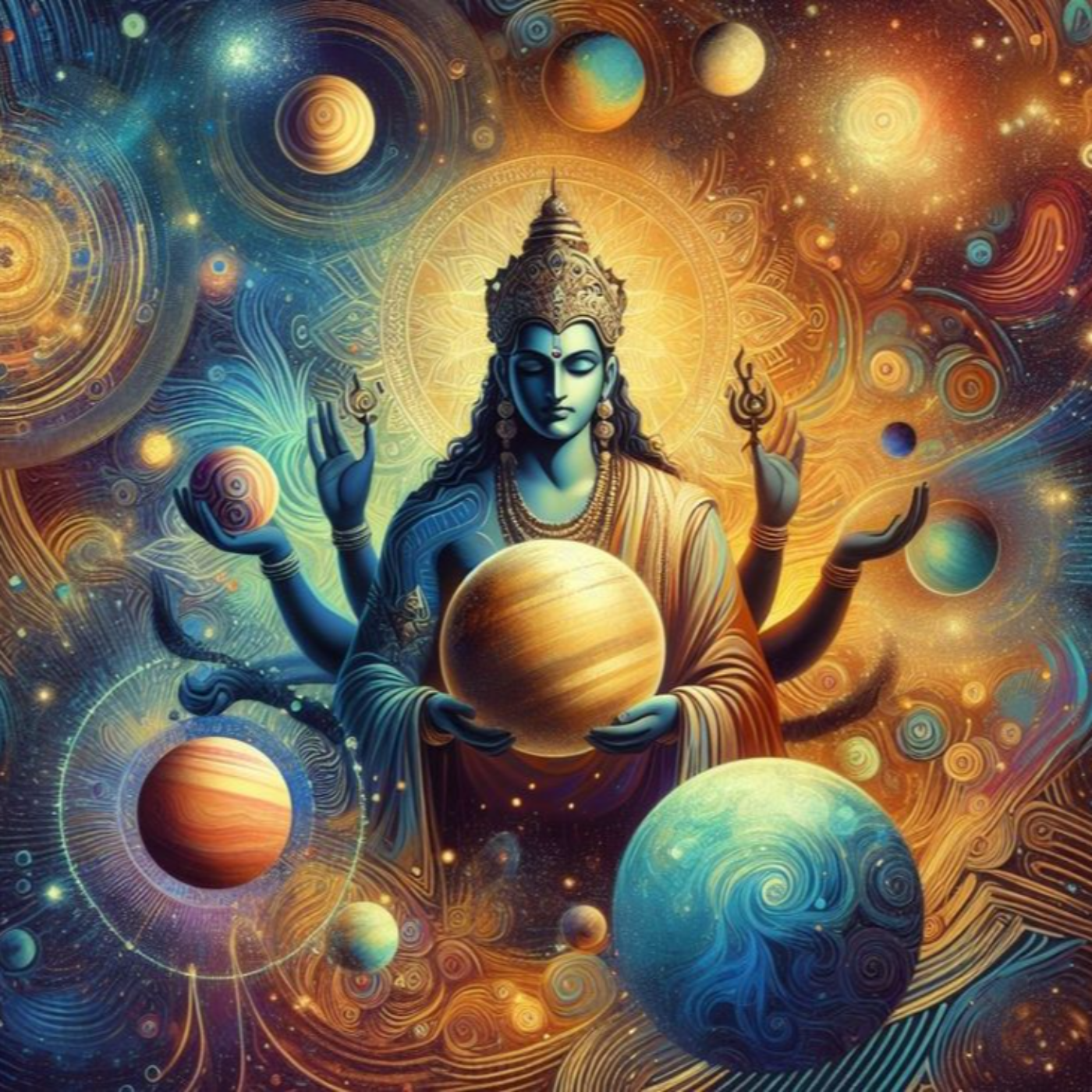Dasakam 088 - Sloka 04
- Author
- Kumar Vembu
- Published
- Tue 10 Dec 2024
- Episode Link
- https://rss.com/podcasts/narayaniyam-learn-to-chant/1794172
भूयोऽथ द्वारवत्यां द्विजतनयमृतिं तत्प्रलापानपि त्वम् को वा दैवं निरुन्ध्यादिति किल कथयन् विश्ववोढाप्यसोढा: । जिष्णोर्गर्वं विनेतुं त्वयि मनुजधिया कुण्ठितां चास्य बुद्धिं तत्त्वारूढां विधातुं परमतमपदप्रेक्षणेनेति मन्ये ॥४॥
भूय:-अथ द्वारवत्यांagain then in Dwaarikaaद्विज-तनय-मृतिम्the Braahmin's son's deathतत्-प्रलापान्-अपि त्वम्his lamentation also Thouको वा दैवं निरुन्ध्यात्-who indeed can resist fateइति किल कथयन्indeed sayingविश्व-वोढा-अपि-the whole world's support evenअसोढा:did not supportजिष्णो:-गर्वम्Arjuna's prideविनेतुम्त्वयिto take away, in Theeमनुज-धियाof a mere human being thinkingकुण्ठितां च-अस्य बुद्धिम्and (his) blunted intellectतत्त्व-आरूढां विधातुंto the Truth's higher level to bringपरमतम-पद-प्रेक्षणेन-the Supreme abode by showingइति मन्येthus I believe
Again then in Dwaarikaa, there was a Braahmin whose children died just when they were born. To the wails and lamentations of the father Thou had just to say that who could resist fate. May be, I believe, seeing this Arjuna's mind was blunted into thinking that Thou were merely a human being. To curb his pride and to take him to the high level of realizing the Truth, Thou showed him the Supreme abode, Vaikuntha.
